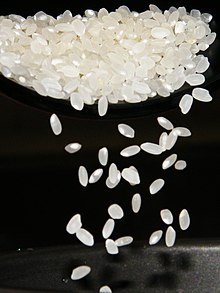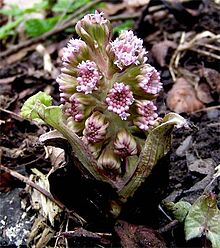Sep. 23rd, 2013 07:51 pm
KodoGuru3 Ep11: Drama Notes
Ep. 11: "Stewed Beef and Five Ingredient Rice-in-a-Pot at a Drive-in in To-kamachi City, Niigata Prefecture;

Episode Synopsis. Goro travels to Niigata Prefecture in his BMW. The rice fields and pastoral scenery make him look forward to eating a rice-based feast after his meeting. He also stops by a shopping street in the station area and tries out some delicacies with names taken from local expressions and phrases. Later, he visits an unusual old house turned into a work of art. There he meets with the town's fun activity planner, a small hairy man with an unlikely name. Later, Goro views the terraced rice fields, reminding him of his other purpose. He drives around until he spots a roadside diner called "Toge no chaya Kura" which serves kamameshi (rice in a pot) dishes and stews.
(info and pic: tvtokyo)
Drama Notes:

Tokamachi, Niigata Prefecture. To-kamachi is located in southern Niigata Prefecture, and known for its Tokamachi Snow Festival. Acc. to its town webpage, "Japan's longest river, the Shinano, flows through the city, which is rich in greenery with over half its area accounted for by hills, mountains, and agricultural land... Winter is particularly characteristic, and the city is covered in snow for around one-third of the year..." Tiered rice fields (pic above) are also located in Matsudai and Matsunoyama areas.
(info/pic: wiki, tokamachishikankou, mofa)

The House That Sheds. The Shedding House was originally an abandoned traditional 200 year old house, with its insides (walls, beams, and floor) chiseled for a period of two and half years by 3,000 people, headed by Kurakake Junichi and the University College of Art Sculpture Course. Guests can even stay for a fee. The house is a part of the Echigo-Tsumari Art Field which is "home to over a hundred fascinating and entertaining modern art installations exhibited throughout the area's 760 square kilometer landscape."
(info/pic: japanguide, official webpage: tsumari-artfield)

Kamameshi. Originally associated with communal eating, kamameshi means "kettle rice" or rice cooked in broth along "with various types of meat, seafood, and vegetables, and flavored with soy sauce, sake, or mirin" usually in an iron pot.
(info/pic: wiki)

Azuki beans. Small red beans, originated in East Asia, traditionally cooked for auspicious occasions and, "most often enjoyed boiled with sugar and mashed into a sweet red bean paste (anko) that is used as a filling in many popular Asian desserts, including ice cream", and traditional cakes.
(info/pic: wiki, drweil)



Episode Synopsis. Goro travels to Niigata Prefecture in his BMW. The rice fields and pastoral scenery make him look forward to eating a rice-based feast after his meeting. He also stops by a shopping street in the station area and tries out some delicacies with names taken from local expressions and phrases. Later, he visits an unusual old house turned into a work of art. There he meets with the town's fun activity planner, a small hairy man with an unlikely name. Later, Goro views the terraced rice fields, reminding him of his other purpose. He drives around until he spots a roadside diner called "Toge no chaya Kura" which serves kamameshi (rice in a pot) dishes and stews.
(info and pic: tvtokyo)
Drama Notes:
 | ..... |  |
| Featured Eatery: Toge no chaya Kura [峠の茶屋 蔵] Address: 217-1 Gimyo, Tokamachi, Niigata Prefecture Tel. no. 025-597-3390 Nearest Station: 10 min drive from Matsudai Station via Hokuhoku line More pix and info: tabelog (map) | Featured Snacks Shop: Kimura-ya [木村屋] Address: Tokamachi Station Street, Niigata Prefecture Tel. no: 025-752-2280 Nearest Station: 95m from Tokamachi Station More pix and info: tabelog (map) |

Tokamachi, Niigata Prefecture. To-kamachi is located in southern Niigata Prefecture, and known for its Tokamachi Snow Festival. Acc. to its town webpage, "Japan's longest river, the Shinano, flows through the city, which is rich in greenery with over half its area accounted for by hills, mountains, and agricultural land... Winter is particularly characteristic, and the city is covered in snow for around one-third of the year..." Tiered rice fields (pic above) are also located in Matsudai and Matsunoyama areas.
(info/pic: wiki, tokamachishikankou, mofa)

The House That Sheds. The Shedding House was originally an abandoned traditional 200 year old house, with its insides (walls, beams, and floor) chiseled for a period of two and half years by 3,000 people, headed by Kurakake Junichi and the University College of Art Sculpture Course. Guests can even stay for a fee. The house is a part of the Echigo-Tsumari Art Field which is "home to over a hundred fascinating and entertaining modern art installations exhibited throughout the area's 760 square kilometer landscape."
(info/pic: japanguide, official webpage: tsumari-artfield)

Kamameshi. Originally associated with communal eating, kamameshi means "kettle rice" or rice cooked in broth along "with various types of meat, seafood, and vegetables, and flavored with soy sauce, sake, or mirin" usually in an iron pot.
(info/pic: wiki)

Azuki beans. Small red beans, originated in East Asia, traditionally cooked for auspicious occasions and, "most often enjoyed boiled with sugar and mashed into a sweet red bean paste (anko) that is used as a filling in many popular Asian desserts, including ice cream", and traditional cakes.
(info/pic: wiki, drweil)

Koshihikari. A popular rice cultivar created in 1956, it is said to have "become very popular now in Japan, in part due to its good appearance. It is one of the most highly-grown varieties of rice in the country, and its taste is said to differ per region. Some people think very highly of the Koshihikari harvested in Uonuma area of Niigata Prefecture which is typically the most expensive rice in all of Japan."
(info/pic: wiki)

Butterbur. From the plant genus, Petasites. In Japanese it's called "fuki". Acc. to recipesfortom, it can be a "tasty vegetable with a faint bitterness and succulent texture similar to that of cucumber or celery stalks." It is also as a remedy for coughs and hay fever.
(info and pic: wiki, recipefortom)
Episode Index: (link)
